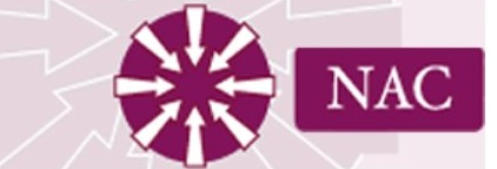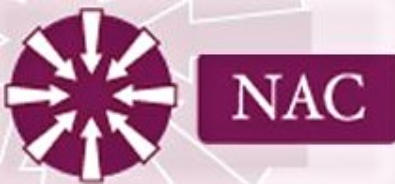

If you have any problem or
query relating to your work
as a councillor.
If there is anything you think
would make the job easier.
If there is any help or
support we could give you.
Please don’t hesitate to get
in touch with us.

National Association of Councillors Northern
Ireland Region
Sketrick House
Jubilee Road
Newtownards
BT23 4YH
t: 028 9181 9413
e: office@nac-ni.org


Code of Conduct Insurance
Following lobbying by the National Association of Councillors, all
eleven councils have now arranged Code of Conduct insurance for
councillors. This means the councils will pay any legal costs incurred
in contesting Code of Conduct complaints, provided the councillor is
subsequently found not to have breached the Code. If a breach is
confirmed however, the councillor will have to reimburse the council.
Tax exemption on travel expenses
Tax exemption for councillors’ travel expenses came into effect
from April 2016. The exemption applies to both income tax and
national insurance contributions. Please check with your
Finance Department if you think the exemption is not being
applied.
DCA carers – widened eligibility
The Department for Communities has agreed on a broader definition
of eligibility for paid carers under the Dependants’ Carers’ Allowance.
Previous guidelines stated that no family member is eligible to be a
paid carer.
New guidelines permit as paid carer any family member who does not
normally live in the household and is not a parent/guardian of the
dependent child. This means siblings, grandparents, non-resident
childrenand other family members are now eligible. This change
follows lobbying by the National Association of Councillors.
AIMS AND OBJECTIVES
The NAC is the only organisation whose agenda is to represent
councillors.
It is the only all-party voice for elected members which makes
it unique in the political world.
We provide advice and signposting to councillors with
individual problems relating to ethics, elections, role
responsibilities, remuneration, tax, expenses, pension, welfare
benefits and any other concerns that are raised. We work to
resolve problems that councillors experience within their role,
by bringing the details to the attention of the relevant bodies
whilst ensuring confidentiality.
WHAT WE DO
•
Councillor Equality – to make representation on behalf of NAC members with the aim of achieving equality
for all councillors across the Northern Ireland region.
•
Councillor Wellbeing – to address matters that affect councillors’ wellbeing and provide appropriate
information and advice accordingly.
•
Councillor Training – to strive for adequate and appropriate training to be available for councillors that will
assist them with carrying out the councillor role.

2023 UPDATE
Councillor Equality
The NAC Executive Committee (EC) has been working over several years to address the problems and concerns
raised by NAC members in relation to the evolvement of the Councillor role and the additional responsibilities and
difficulties that Councillors across the Northern Ireland region have been experiencing.
The Department for Communities (DfC) Minister, Deirdre Hargey MLA, agreed in December 2021 that it was now
timely for an independently led review of the councillor role. This was a positive step forward but with the collapse
of the Northern Ireland Assembly in February 2022 there followed a period of uncertainty as to whether a review
can be progressed.
The NAC will continue to make representation on behalf of its members, working towards getting the long-awaited
review of the councillor role and in February 2023 an NAC delegation met with DfC departmental officials and
discussed if elements of the review can be progressed. Updates will be provided on this in due course, for further
information please view our last update by clicking here.
Councillor Wellbeing
Whilst it is understandable that during these difficult times many members of the public have become concerned
and frustrated with government and local councils, but social media abuse directed at councillors is a growing
concern and many of our members have been affected or are aware of others who have had to deal with this.
Councillors primarily take on the role to assist as public representatives for their communities, and act accordingly
on their behalf and in their best interests, therefore, to be blamed, targeted, and attacked through social media
for issues that are outside of their control can be very difficult for many councillors to cope with and this can have
a negative effect on their general wellbeing and mental health.
The NAC ask all members to continue to keep the officers informed of problems they are encountering so that
experiences can be shared, and advice sought and circulated to help resolve issues and benefit all members.
Councillor Training
NAC members should be offered on-going training for updating their knowledge and skills and have regular
access to courses and workshops relevant to the work they are carrying out.
The NAC UK have a series of conferences arranged for 2024. The list of these events is on the Meetings Page of
the NAC NI Website. Details have been circulated to local councils.
The NAC NI Region continue in their development of Developing Leadership and Change in Local Enterprise,
through our Councils and Councillors. Further free events are planned for 2024.
NAC N. Ireland Leadership Series 2023/24,
“Developing A New Economy”
I
Friday 19 January 2024 – 12.00pm – 4.45pm, Ulster University, York Street Campus, Belfast
II
II. Friday 26 January 2024 – 12.00pm – 4.45pm, Ulster University, Magee Campus, Derry / Londonderry
The two interactive workshops are aimed at co-designing future local economic development, learning and
knowledge at councillor and community level, through locally led, transformative partnerships.
Speakers include:
Federation of Small Businesses, Northern Mutual Bank, Regional Colleges, Enterprise NI, Family Business Forum,
AccessoLoo, Centre for Independent Living, Ethnic Minority Employment & Entrepreneurship Forum, Society of
Council Chief Executives, Ulster University, National Association of Councillors
NB: places on each event are strictly limited & will be subject to capacity & related terms. To register free of charge
please contact Linda Williamson, NAC NI, via email office@nac-ni.org stating your name, council / organisation,
location preference (Magee, Derry – Londonderry OR Belfast) and any dietary requirements.

ACHIEVEMENTS
As a result of Councillors acting collectively for their common interests, we have managed to achieve major
improvements to councillors’ pay and conditions, such as:
•
Increases in Councillors’ allowances and faster payments
•
Implementation of a pension scheme for Councillors
•
Arranged for Councillors’ travel expenses to be exempt from Tax and National Insurance
•
Represented Councillors’ interests during the local government reorganisation by the formation of an
Independent Remuneration Panel with increased councillors’ allowances for the new councils
•
Achieved severance payments for Councillors


We provide information on changes in legislation, revised allowances, government consultations and other
matters affecting councillors.
We offer a forum for councillors to voice opinions and concerns, and exchange information and experience
through our bi-monthly members’ meetings.
We communicate regularly with our members by sending out information emails, newsletters and keeping our
website updated.

Prior to elected members becoming exempt from
payment of Data Collection fees from the 1st April
2019, the NAC attempted to get all councils to
reimburse GDPR fees that had been paid by their
councillors. This campaign started in 2018 when we
surveyed all councillors, at that time there were nine
councils not reimbursing fees. Following letters sent
by the NAC, the number of councils not reimbursing
fees was reduced to five. Work on this campaign
ceased when the new legislation came into force.
Reimbursement of GDPR Fees

t: 028 9181 9413
e: office@nac-ni.org

If you have any problem or query
relating to your work as a
councillor, if there is anything you
think would make the job easier,
if there is any help or support we
could give you, don’t hesitate to
get in touch with us.
National Association of Councillors
Northern Ireland Region
Sketrick House
Jubilee Road
Newtownards
BT23 4YH
t: 028 9181 9413
e: office@nac-ni.org
Code of Conduct Insurance
Following lobbying by the National
Association of Councillors, all eleven
councils have now arranged Code of
Conduct insurance for councillors. This
means the councils will pay any legal
costs incurred in contesting Code of
Conduct complaints, provided the
councillor is subsequently found not to
have breached the Code. If a breach is
confirmed however, the councillor will
have to reimburse the council.
Tax exemption on travel
expenses
Tax exemption for councillors’ travel
expenses came into effect from April
2016. The exemption applies to both
income tax and national insurance
contributions. Please check with your
Finance Department if you think the
exemption is not being applied.


DCA carers – widened eligibility
The Department for Communities has
agreed on a broader definition of
eligibility for paid carers under the
Dependants’ Carers’ Allowance. Previous
guidelines stated that no family
member is eligible to be a paid carer.
New guidelines permit as paid carer any
family member who does not normally
live in the household and is not a
parent/guardian of the dependent child.
This means siblings, grandparents, non-
resident children and other family
members are now eligible. This change
follows lobbying by the National
Association of Councillors.
WHAT WE DO
Reimbursement of GDPR Fees
Prior to elected members becoming
exempt from payment of Data
Collection fees from the 1st April
2019, the NAC attempted to get all
councils to reimburse GDPR fees that
had been paid by their councillors.
This campaign started in 2018 when
we surveyed all councillors, at that
time there were nine councils not
reimbursing fees. Following letters
sent by the NAC, the number of
councils not reimbursing fees was
reduced to five. Work on this
campaign ceased when the new
legislation came into force.
The NAC is the only organisation whose
agenda is to represent councillors.
It is the only all-party voice for elected
members which makes it unique in the
political world. We provide advice and
signposting to councillors with
individual problems relating to ethics,
elections, role responsibilities,
remuneration, tax, expenses, pension,
welfare benefits and any other concerns
that are raised. We work to resolve
problems that councillors experience
within their role, by bringing the details
to the attention of the relevant bodies
whilst ensuring confidentiality.
We provide information on changes in
legislation, revised allowances,
government consultations and other
matters affecting councillors.
We offer a forum for councillors to voice
opinions and concerns, and exchange
information and experience through
our bi-monthly members’ meetings.
We communicate regularly with our
members by sending out information
emails, newsletters and keeping our
website updated.
AIMS AND OBJECTIVES
2023 UPDATE
ACHIEVEMENTS
As a result of Councillors acting
collectively for their common interests,
we have managed to achieve major
improvements to councillors’ pay and
conditions, such as:
•
Increases in Councillors’ allowances
and faster payments
•
Implementation of a pension
scheme for Councillors
•
Arranged for Councillors’ travel
expenses to be exempt from Tax
and National Insurance
•
Represented Councillors’ interests
during the local government
reorganisation by the formation of
an Independent Remuneration Panel
with increased councillors’
allowances for the new councils
•
Achieved severance payments for
Councillors



•
Councillor Equality – to make
representation on behalf of NAC
members with the aim of achieving
equality for all councillors across the
Northern Ireland region.
•
Councillor Wellbeing – to address
matters that affect councillors’
wellbeing and provide appropriate
information and advice accordingly.
•
Councillor Training – to strive for
adequate and appropriate training to
be available for councillors that will
assist them with carrying out the
councillor role.
Councillor Equality


Commons Photo Credit: Source
The NAC Executive Committee (EC)
has been working over several years
to address the problems and concerns
raised by NAC members in relation to
the evolvement of the Councillor role
and the additional responsibilities and
difficulties that Councillors across the
Northern Ireland region have been
experiencing.
The Department for Communities
(DfC) Minister, Deirdre Hargey MLA,
agreed in December 2021 that it was
now timely for an independently led
review of the councillor role. This was
a positive step forward but with the
collapse of the Northern Ireland
Assembly in February 2022 there
followed a period of uncertainty as to
whether a review can be progressed.
The NAC will continue to make
representation on behalf of its
members, working towards getting
the long-awaited review of the
councillor role and in February 2023
an NAC delegation met with DfC
departmental officials and discussed if
elements of the review can be
progressed. Updates will be provided
on this in due course, for further
information please view our last
update by clicking here.
Councillor Wellbeing
Whilst it is understandable that during
these difficult times many members
of the public have become concerned
and frustrated with government and
local councils, but social media abuse
directed at councillors is a growing
concern and many of our members
have been affected or are aware of
others who have had to deal with this.
Councillors primarily take on the role
to assist as public representatives for
their communities, and act
accordingly on their behalf and in
their best interests, therefore, to be
blamed, targeted, and attacked
through social media for issues that
are outside of their control can be
very difficult for many councillors to
cope with and this can have a negative
effect on their general wellbeing and
mental health.
The NAC ask all members to continue
to keep the officers informed of
problems they are encountering so
that experiences can be shared, and
advice sought and circulated to help
resolve issues and benefit all
members.
Councillor Training
NAC members should be offered on-
going training for updating their
knowledge and skills and have regular
access to courses and workshops
relevant to the work they are carrying
out.
The NAC UK have a series of
conferences arranged for 2024. The
list of these events is on the Meetings
Page of the NAC NI Website. Details
have been circulated to local councils.
The NAC NI Region continue in their
development of Developing
Leadership and Change in Local
Enterprise, through our Councils and
Councillors. Further free events are
planned for 2024.
NAC N. Ireland Leadership Series
2023/24,
“Developing A New Economy”
I
Friday 19 January 2024 – 12.00pm
– 4.45pm, Ulster University, York
Street Campus, Belfast
II
II. Friday 26 January 2024 –
12.00pm – 4.45pm, Ulster University,
Magee Campus, Derry / Londonderry
The two interactive workshops are
aimed at co-designing future local
economic development, learning and
knowledge at councillor and
community level, through locally led,
transformative partnerships.
Speakers include:
Federation of Small Businesses,
Northern Mutual Bank, Regional
Colleges, Enterprise NI, Family
Business Forum, AccessoLoo, Centre
for Independent Living, Ethnic
Minority Employment &
Entrepreneurship Forum, Society of
Council Chief Executives, Ulster
University, National Association of
Councillors
NB: places on each event are strictly
limited & will be subject to capacity &
related terms. To register free of
charge please contact Linda
Williamson, NAC NI, via email
office@nac-ni.org stating your name,
council / organisation, location
preference (Magee, Derry –
Londonderry OR Belfast) and any
dietary requirements.

















